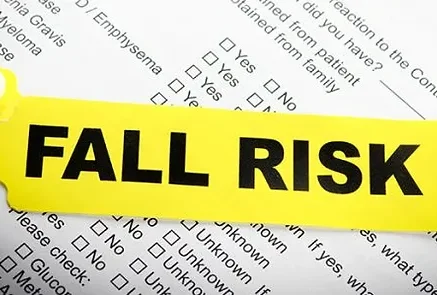The COVID-19 pandemic has been shown to produce high infection rates, significant morbidity, and mortality among older adults. A significant proportion of people who have recovered from acute COVID-19 illness seem to suffer from post-COVID-19 syndrome. Post-COVID-19 syndrome is thought to be a multisystem disease involving physical, functional, mental, and psychological domains.
What causes post-COVID syndrome?
While it’s clear that people with certain risk factors (including high blood pressure, smoking, diabetes, obesity, and other conditions) are more likely to have a serious bout of COVID-19, there isn’t a clear link between these risk factors and long-term problems. Long COVID can happen in people who have mild symptoms.
What causes post-COVID syndrome in Elders?
SARS-CoV-2 can attack the body in a range of ways, causing damage to the lungs, heart, nervous system, kidneys, liver, and other organs. Mental health problems can arise from grief and loss, unresolved pain or fatigue, or post-traumatic stress disorder (PTSD) after treatment in the intensive care unit (ICU).
What are the long-term effects of coronavirus infection?
According to the CDC, the most common lasting symptoms are fatigue, shortness of breath, cough, joint pain, and chest pain. Other issues include cognitive problems, difficulty concentrating, depression, muscle pain, headache, rapid heartbeat, and intermittent fever.

Common signs and symptoms that linger over time include:
- Fatigue
- Shortness of breath or difficulty breathing
- Cough
- Joint pain
- Chest pain
- Memory, concentration, or sleep problems
- Muscle pain or headache
- Fast or pounding heartbeat
- Loss of smell or taste
- Depression or anxiety
- Fever
- Dizziness when you stand
- Worsened symptoms after physical or mental activities
Breathing issues after COVID-19
A bad case of COVID-19 can produce scarring and other permanent problems in the lungs, but even mild infections can cause persistent shortness of breath — getting winded easily after even light exertion.
Heart problems after COVID-19
SARS-CoV-2 infection can leave some people with heart problems, including inflammation of the heart muscle. In fact, one study showed that 60% of people who recovered from COVID-19 had signs of ongoing heart inflammation, which could lead to the common symptoms of shortness of breath, palpitations, and rapid heartbeat. This inflammation appeared even in those who had had a mild case of COVID-19 and who had no medical issues before they got sick.
Blood clots and blood vessel problems
COVID-19 can make blood cells more likely to clump up and form clots. While large clots can cause heart attacks and strokes, much of the heart damage caused by COVID-19 is believed to stem from very small clots that block tiny blood vessels (capillaries) in the heart muscle.
Other parts of the body affected by blood clots include the lungs, legs, liver, and kidneys. COVID-19 can also weaken blood vessels and cause them to leak, which contributes to potentially long-lasting problems with the liver and kidneys.
Lost or distorted senses of smell and taste after COVID
The senses of smell and taste are related, and because the coronavirus can affect cells in the nose, having COVID-19 can result in altered or lost senses of smell or taste. Before and after people become ill with COVID-19, they might lose their sense of smell or taste entirely, or find that familiar thing smell or taste bad, strange, or different.
For about a quarter of people with COVID-19 who have one or both of these symptoms, the problem resolves in a couple of weeks. But for most, these symptoms persist. Though not life-threatening, prolonged distortion of these senses can be devastating and can lead to a lack of appetite, anxiety, and depression. Some studies suggest that there’s a 60% to 80% chance that these people will see improvement in their sense of smell within a year.
Mental health issues after COVID-19
After surviving COVID-19, some people are left with lingering anxiety, depression, and other mental health issues. Physical changes such as pain and weakness can be complicated by long periods of isolation, stress from job loss and financial difficulties, and grief from the deaths of loved ones and the loss of good health.
Article source
- https://www.hopkinsmedicine.org/health/conditions-and-diseases/coronavirus/covid-long-haulers-long-term-effects-of-covid19
- https://www.mayoclinic.org/diseases-conditions/coronavirus/in-depth/coronavirus-long-term-effects/art-20490351
“We are excited to announce that we have expanded our geriatric care clinic to Kochi, also known as Cochin, in Kerala. Our experienced team of doctors and nurses is dedicated to providing high-quality medical care and compassionate support to seniors and their families. We offer a range of services, including doctor consultation, doctor consultation at home, and nursing. Whether you need medical attention for yourself or your loved ones, we are here to help. Contact us today to schedule an appointment and experience the difference at Dr. Rahul’s Elder Care.”



